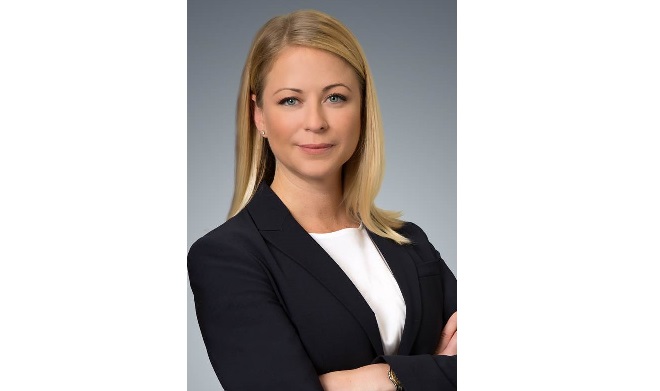This is the fourth installment of our Alumni Spotlight series, which features interviews with former IRAP students who have become strong advocates and leaders in their fields of practice.
Meet Alexis Federico, Litigation Associate at Irell & Manella LLP and former Director of the IRAP Chapter at the University of California Irvine School of Law, and find out more about how IRAP influenced her career decisions.
How did you become involved with IRAP and how did IRAP impact your law school experience?
I learned about IRAP by attending an open meeting the first semester of my 1L year. At around the same time, my spouse asked me about how we could help his former military interpreter obtain a Special Immigrant Visa (SIV). With the help of IRAP, I was able to take on his case and assist him in successfully obtaining his SIV. I continued to stay involved in IRAP, eventually becoming the Co-Director, then Director of the IRAP Chapter at UCI. I found the work tremendously meaningful and really enjoyed working with subsequent clients—who are some of the most resourceful and resilient people in the world.
IRAP shaped my law school experience by allowing me to provide legal assistance to those in need, while learning a lot from them. Volunteering with IRAP has made me a better advocate and improved the way in which I respond to various legal, social, and logistical issues.
IRAP has a unique model of partnering law students with pro bono lawyers — please describe your experience working with attorneys on urgent refugee resettlement cases.
Each supervising attorney has a different approach. In my case, my supervising attorney allowed me to really take ownership of the case and take the lead on developing and implementing important decisions. I appreciated having her guidance, but I also appreciated that she gave me the opportunity to manage my first case.
What have you been doing since you graduated from UCI in 2016?
Since graduating, I have been working at the Newport Beach office of Irell & Manella LLP. I am a litigation associate and have worked on a variety of matters, including high stakes business litigation, insurance, and patent cases. My firm has a strong commitment to pro bono and I am currently working on two asylum cases.
In what ways has your involvement with IRAP in law school impacted your career?
Engaging in pro bono work during law school, especially with IRAP, has helped me develop skills essential for success as a new associate. IRAP provided me with the opportunity to manage a case, solve real-world, complex problems, interview clients and witnesses, and improve my legal research and writing. I discovered that I have a passion for pro bono work and that it was important for me to work for a firm that had a strong pro bono commitment.
The world is currently facing the largest refugee crisis since World War II. Why is IRAP’s work — mission and model — so important?
I think IRAP serves a crucial role in the current refugee crisis. There is a huge need for legal services for refugees that cannot be filled by public interest attorneys alone. IRAP organizes and energizes law students and private attorneys to help fill that need. I believe IRAP also serves a critical role in raising public awareness of the refugee crisis and providing accurate, factual information on the legal process for refugees. Through IRAP’s model, members of the public—who might have been unfamiliar with the refugee crisis or the refugee process—can become engaged advocates for refugees and help inform others of the facts surrounding the crisis.
Are you an IRAP alum who would like to be featured on our website and quarterly newsletter? Join our IRAP Alumni Association and send us an email!




Comments are closed.